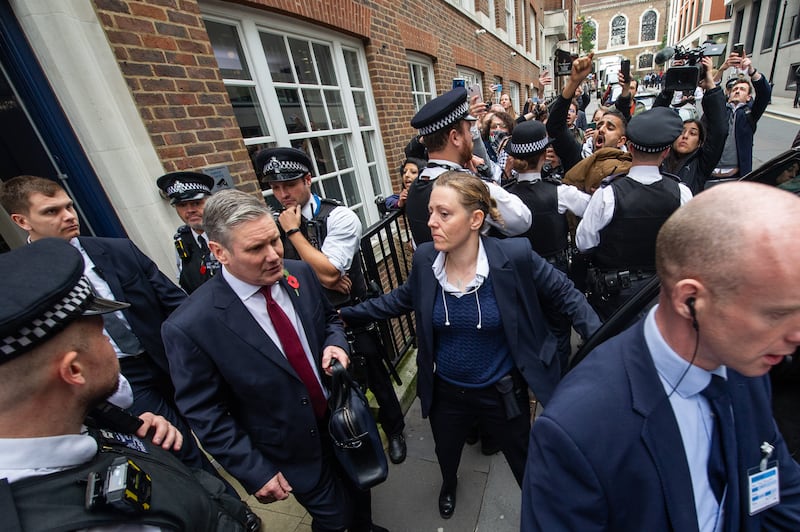Live updates: Follow the latest news on Israel-Gaza
Anger over Gaza is bringing together independent candidates hoping to challenge the Labour Party at the next UK general election.
Former Labour members and politicians are among a growing number of independent candidates who hope they can steer the next government’s foreign policy on Palestine.
Although Labour's position on the Israel-Gaza war has shifted, party leader Keir Starmer's initial refusal to call for a ceasefire has sparked anger among supporters.
David Lammy pressed Foreign Secretary David Cameron on the legality of arms exports to Israel this week, in his response to the government's statement on Gaza.
"The war in Gaza has seen numerous allegations made of serious breaches of international humanitarian law by Israeli forces in the conduct of this campaign," the shadow foreign secretary wrote in his newsletter on Wednesday.
"Should Israel be found to be in breach of these criteria, British export licences for the armaments would have to be suspended.
"Has the Foreign Secretary received legal advice saying there is a clear risk that items licensed by the UK might be used to commit or facilitate a serious violation of international humanitarian law?”
Yet the number of independents standing for election was “going up every week,” said Emma Dent Coad, a former Labour MP for Kensington and Bayswater.
“It’s extraordinary how many there are now over Gaza specifically,” Ms Dent Coad told The National.
Having quit the party in April last year, before the Israel-Gaza war erupted, she plans to run as an independent parliamentary candidate for the same constituency, which is held by Conservative MP Felicity Buchan.
“People started asking me in the street, 'Can you stand for Parliament again? Because we need you. We've got no one to vote for. We're certainly not voting Tory. I'm not going to vote Labour any more'," Ms Dent Coad said.
These independents have a “mutual support group”, where veteran politicians could advise those with no campaign experience, she said.
Paul Mason, a former BBC journalist who is seeking a Labour nomination, worries that a broad front would fall for the ruling Conservatives' plan to weaken the Labour support base through divisive identity politics.
Mr Mason said former allies should remember the Conservatives' responsibility for rising racism and anti-Muslim sentiment and sowing division.
"If multiculturalism fails, we're finished, because we are people who live in solidarity side by side," he said, at an event in West Kilburn this week.
“The main problem is what the Tories are trying to do to our society. They're trying to atomise it, they're trying to divide us so that what we turn on each other.".
Ms Dent Coad was excluded from Labour’s long-list of candidates in 2022, and quit months later.
She had been a member of the party for almost 40 years and a Labour councillor for 18.
“I was beginning to fear I was in the wrong place and no longer welcome, really,” Ms Dent Coad said.
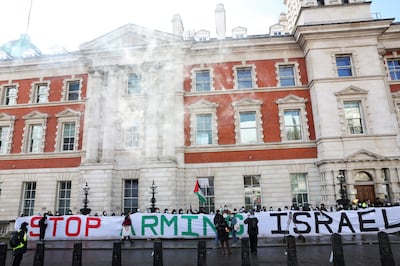
In her time as an MP, she worked closely with victims of the Grenfell Tower fire, and the area’s Middle East minorities. They are among those supporting her today.
“We have a large Muslim community who I’ve always worked with, and they know me, because I’ve been around a long time. I couldn’t not support them,” Ms Dent Coad said.
She said that a quarter of her constituents were Muslim.
Gaza will have to be “a major part” of her campaign – but not all of it.
“We have to do everything else as well,” Ms Dent Coad said.
Movement of independents
One recently announced independent candidate was Tanushka Marah, a theatre director in Hove of Jordanian and Palestinian origin, who was chosen by a collective of socialist and pro-Palestine campaigners, Brighton and Hove News reported.
“I will devote myself to calling for a ceasefire in Gaza, ending the genocide, and an end to occupation," Ms Marah was reported as saying.
“I want to be the suffragette who disrupts the race between Labour and Tory – the two war and austerity parties – and stays standing, able to walk forwards."
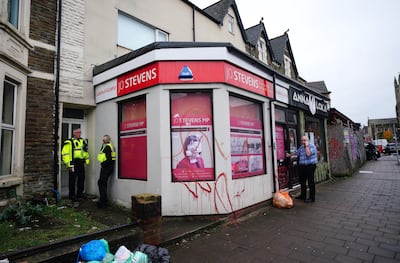
Candidates with a high percentage of Muslim constituents "just might" be able to make a difference between a Labour win and loss in their seats, said Paul Webb, professor of politics at the University of Sussex. But competition will be tough.
In many cases, Prof Webb said, they were "unlikely" to stop Labour winning.
In Ilford North, British Palestinian Leanne Mohammed hopes to unseat Wes Streeting, the shadow health secretary, who has held the constituency since 2005.
The constituency saw only a 10 per cent vote for Labour in 2019, and its sizeable Muslim population probably outweighs that percentage.
But this was not enough to guarantee a victory, Prof Webb said.
"We have to also bear in mind that there has probably been a general swing to Labour in all these places, which might increase the party's potential lead," he said.
An "Arab lobby" group was established in London in early March to support British-Arab candidates in the coming election.
They include Kamel Hawwash, chairman of the Palestine Solidarity Campaign, who will run in Birmingham, and Mona Adam, a Green party candidate in Kensington and Bayswater.
Helmi Alharahsheh, who leads the Jordanian Forum in the UK, also plans to stand in Ealing North, which has been a Labour seat since 1997.
British-Palestinian Sam Habeeb, who is from Gaza, announced he will also stand as an independent in Ealing North.
He was suspended from Labour in 2018 after accusations of anti-Semitic comments in 2010.
Another independent for Gaza is expected to announce their candidature in Southhall, in which Labour won 38 per cent of votes in 2019. They are understood to be non-Muslim and not of Middle East origin.
The "party of hope" divided
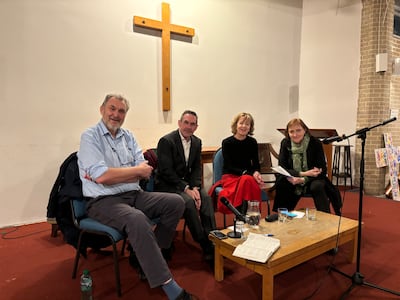
The doubts around Labour among its support base do not just stop at Gaza.
The party has been divided since it lost the 2019 general election under the leadership of Jeremy Corbyn.
Mr Starmer has vowed to “rip” anti-Semitism out of the party, an accusation that plagued it under its predecessor.
But many of Mr Corbyn’s supporters today feel disillusioned by the new status quo.
This has been exacerbated by the suspension of many of the party’s senior figures, including MP Diane Abbott last year, a key ally of Mr Corbyn.
They fear that the party will adopt a "timid" response to national issues such as the housing shortages, rising poverty and the crisis in the NHS.
These divisions were expressed at a panel discussion on this week, held at a local church and community centre in West Kilburn, north-west London.
“I know that there will be people in the audience tonight for whom it is unthinkable that they would vote anything other than Labour in the coming election,” said moderator Melissa Benn.
“I also know that there are people who are going to find it impossible to put their 'x' in the box for Labour when the election comes."
For Ms Dent Coad, who spoke at the event, Labour had become part of the political establishment and could no longer represent the concerns of working people.
“Labour is part of the institution," she told the packed church. "Labour will not fight our battles or defend our most vulnerable. Labour will not ensure our young people have a better future.
“They have dehumanised and disrespected the party membership by disempowering them."
Ms Dent Coad believed another party could come from former members, but not before the next general election.
“There's been a lot of conversations," she said. "It's not going to happen before the next election, there's no doubt about that. Another movement will come out of this, but it won't happen yet."
Mr Mason gave Labour’s defence. He said the British left needed to overcome its differences and vote against a Conservative government that had taken a further turn to the right, and become “fascist-curious”.
“Working class people in this town, in this city, in this area, and in all parts of Britain, we have a big fight," he said.
Mr Mason also feared that elements of the left disagreeing with Mr Starmer had gone down “some very dark rabbit holes”.
“I don't want anything to do with people who tolerate anti-Semitism," he said. "I don't want anything to do with people who want to disarm the Ukrainian people in their struggle against fascism.
“I don't look at myself as part of the same left and guess what, I haven't been purged."
Mr Mason is rumoured to be the preferred candidate to unseat Mr Corbyn, who is expected to run as an independent.
Others were advocating a return to the Labour party 2017 manifesto, which was considered by critics to have been too radical and unrealistic.
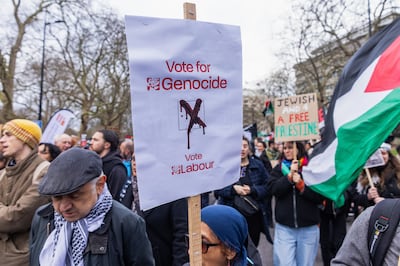
Labour needed more "radical" policies if it wanted to address major national issues in the long term, said, Kevin Courtney, former joint-general secretary of the National Education Union, the UK's biggest trade union, with half a million members.
“What's happening is the Tories losing an election, rather than Labour winning an election," Mr Courtney said.
"That makes me worry that Labour could easily lose the next election if they do not show some radicalism or break with what they're doing."
Although Labour winning over the Conservatives was a good thing, “It doesn't deal with the deep crisis that I feel that the world is going to be worse for my children, and worse for my grandchildren, unless we break with the timidity of Labour,” he said.
Mr Courtney called on audiences to “build a mass movement outside Parliament. Build the unions, challenge".
He said he would vote for Diane Abbott, his current MP, should she not be readmitted to Labour for the next election, and he would help to campaign for Jeremy Corbyn in Islington.
The anti-Semitism row resurfaced at the end of the panel, when a woman accused "Keir Starmer and his Israeli sponsors" of waging a media campaign against Jeremy Corbyn, and preventing Ms Dent Coad from running again.
"I think that's a mistaken way to talk about these things. Absolutely wrong way to talk about it," Mr Courtney said.
"It's not the way politics works. Israel is actually an agent of the US and the UK … It's not a puppet master pulling the strings of people.
Mr Mason accused the remarks of anti-Semitism.
"Why didn't you just say he's a Jewish agent? Because that's what you mean, isn't it?" he said.
"If the left wants to break with Labour, if the left wants to go down the rabbit hole of all the other alliances that are being formed, good luck. Not as good luck as to the Greens."
Ms Dent Coad did not comment on the woman's remarks but condemned Mr Mason's accusation.
"We've been on marches together and I know exactly where she stands. We are marching with our Jewish brothers and sisters," she said.
"I'm not having that. It's the easiest thing in the world to accuse somebody of anti-Semitism when they are against a political ideology."
